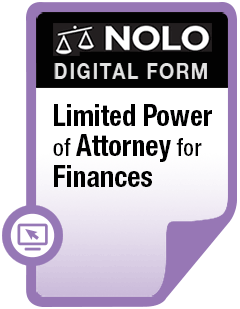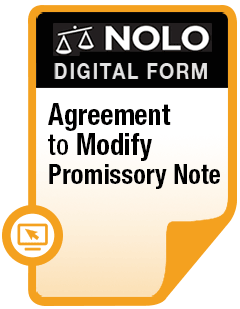The federal Credit Card Accountability Responsibility and Disclosure (CARD) Act of 2009 and some state laws regulate gift certificates and gift cards.
The Credit Card Accountability Responsibility and Disclosure (CARD) Act of 2009 regulates gift certificates and gift cards. This federal law sets certain disclosure requirements and restrictions concerning fees and expiration dates. In most cases, a gift certificate or gift card can expire after five years. But some state laws provide even greater consumer protections than federal law.
If you're planning on buying a gift certificate or gift card—or if you've recently received one—you should learn how they work and what laws apply to them.
- What Is a Gift Card or Gift Certificate?
- What Are the Federal Laws Governing Gift Certificate and Gift Card Expiration?
- Do Gift Certificates or Gift Cards Expire?
- What Are Inactivity Fees for Gift Certificates and Gift Cards?
- Do State Laws Offer Additional Protections for Gift Certificates or Gift Cards?
- What Happens If My Gift Certificate or Gift Card Expires?
- How Can I Find Out the Expiration Date of My Gift Certificate or Gift Card?
- Beware of Gift Card and Gift Certificate Scams
- What to Keep in Mind When Buying Gift Certificates and Gift Cards
- Find More Information on Gift Certificates and Gift Cards
What Is a Gift Card or Gift Certificate?
A "gift card" or "gift certificate" is a prepaid way for one person to give money to another. If you want to make purchases or give a gift to someone else, gift certificates and gift cards are a convenient substitute for cash or using a credit card.
Vendors often use electronic gift certificates and cards or, in some cases, plastic cards rather than paper certificates because of lower costs and they're less susceptible to fraud and counterfeiting. You can use physical gift cards in stores or online. Electronic gift certificates and gift cards are usually used online. Digital certificates and cards, as well as plastic ones, have a unique code number that you use when making purchases.
Are Gift Certificates and Gift Cards Reloadable?
While gift certificates can't be reloaded, a card might be either reloadable or non-reloadable.
Closed-Loop vs. Open-Loop Cards
Gift cards can be either "closed-loop" or "open-loop."
Closed-loop cards. Closed-loop gift cards can only be used to buy items from specific merchants. These store and restaurant gift cards are also called "merchant" cards and can normally be redeemed only at the stores and restaurants that sell them. Generally, these cards aren't reloadable—when the dollar amount on the card is used up, the card becomes useless.
Open-loop cards. Open-loop cards, on the other hand, can be used anywhere that brand of card is accepted. So, if you have a card that's branded with a payment card network, such as Visa or MasterCard, you can use it anywhere that accepts that brand to make purchases, get cash from ATMs, or pay bills, for example. These cards, called "general-use prepaid cards" under federal law (see 12 C.F.R. §1005.20(a)(3) and (b)), are marketed as gift cards or gift certificates and are reloadable. You can use them indefinitely if there's money on the card.
What Are the Federal Laws Governing Gift Certificate and Gift Card Expiration?
The federal CARD Act provides consumer protections for gift certificates, gift cards, and general-use prepaid cards through amendments to the Electronic Fund Transfer Act. The law governs gift certificate and gift card expiration.
Do Gift Certificates or Gift Cards Expire?
Under the CARD Act, gift certificates and store gift cards can't expire for at least five years from the date of issuance (in the case of a gift certificate), or the date funds are last loaded on the card (if it is a store gift card or general-use prepaid card). (15 U.S.C. § 1693l–1, 12 C.F.R. §1005.20(e)(2)(i)).
The CARD Act also requires a clear and conspicuous disclosure of any expiration term. The expiration date for the underlying funds, or a statement that the funds won't expire, must be disclosed on the certificate or card. (12 C.F.R. §1005.20(e)(3)(i)). Also, the issuer must disclose on the card or certificate a toll-free number and a website, if the issuer has one, that a consumer may use to get a replacement certificate or card after the certificate or card expires if the underlying funds may be available. (12 C.F.R. §1005.20(e)(3)(ii), 12 C.F.R. §1005.20(f)(2)).
What Are Inactivity Fees for Gift Certificates and Gift Cards?
The CARD Act also places general limitations on fees. For example, issuers can charge an "inactivity fee" if the card has not been used within twelve months. (15 U.S.C. § 1693l–1).
Under the law, only one such fee is allowed per calendar month. And the fees must be disclosed clearly and conspicuously before the gift certificate or gift card is purchased. (15 U.S.C. § 1693l–1, 12 C.F.R. §1005.20(c)(3) and (d)).
What Other Fee Charges Are Allowed?
The issuer must also disclose additional fees that aren't considered dormancy, inactivity, or service fees, including initial issuance and cash-out fees. The type of fee, the fee amount (or an explanation of how the fee is determined), and the conditions under which the issuer may impose the fee are also required to be disclosed. (12 C.F.R. §1005.20(f)(1)).
Fee Disclosures
Inactivity fees and expiration dates must be disclosed on the card or certificate, but information about additional fees can be stated on or with the card or certificate. They must also be provided before the consumer makes the purchase. (12 C.F.R. §1005.20(f)(1), 12 C.F.R. §1005.20(d)(2)).
Do State Laws Offer Additional Protections for Gift Certificates or Gift Cards?
Some states have laws that regulate gift certificates and gift cards. Certain states don't allow gift cards or gift certificates to expire, and others have terms longer than five years for the expiration period.
In California, for example, it's against the law for store gift certificates and gift cards to have an expiration date or dormancy fees (except under certain circumstances), and, if the balance on the card is less than $10, you can redeem it for cash. (Cal. Civil Code § 1749.5).
What Happens If My Gift Certificate or Gift Card Expires?
If your gift card or gift certificate expires, the issuer usually keeps the money. Generally, the card or certificate's terms and conditions say that the money is nonrefundable. But not always.
Also, the CARD Act doesn't require the issuer to replace gift cards or gift certificates that are lost or stolen. Unlike credit cards, you might not have any recourse or be able to get a refund. But in some cases, depending on the card or certificate and its terms and conditions, the card or certificate can be canceled, and a replacement or refund issued, usually for a fee.
How to Get a Replacement Gift Certificate or Gift Card
If you need to get a replacement card or certificate (and the terms allow it), this process will be easier if you have the gift card or certificate number. If you have the receipt from when you got the card, check it for the number. Or, if you ordered it on the internet, you should be able to get the transaction details online. Better yet, take a photo of the card or certificate when you first obtain it.
Then, contact the issuer, explain what happened, and ask if they'll issue you a replacement.
How Can I Find Out the Expiration Date of My Gift Certificate or Gift Card?
Gift certificates and gift cards should have a "valid through" date printed on them. For example, the expiration date might be on the front of a gift certificate or on the back of a gift card. If you can't find the expiration date, you can call the customer service number and ask.
Beware of Gift Card and Gift Certificate Scams
Because gift cards and certificates are treated like cash and, therefore, hard to trace, scammers sometimes use gift cards as a way to rip people off.
Some Common Gift Card Scams
One common scam is when a scammer contacts you and pretends to be a lawyer or law enforcement agent who's calling (or emailing or texting) on behalf of a family member who is supposedly in trouble with the law. The scammer says you need to buy gift cards from a particular vendor in specific amounts to pay them to help your family member. After you buy the gift cards, the scammer requests the code numbers and PINs. Of course, this is a scam. Legitimate attorneys and law enforcement won't ask for payment in gift cards.
A similar scam involves an email or text from your boss or employer with a similar request for gift cards. Basically, if anyone asks you to buy gift cards for them, it's probably a scam. Always question a request for gift cards. Scammers often try to force a sense of urgency to get a quick response before you have time to think about whether the request is a scam.
Another kind of scam is called "card draining." A scammer drains a gift card by getting the bar code, PIN number, CVV number, or activation code from inside the packaging. They then reseal the card, wait for you to buy it and load it with money, and then spend the balance before you can.
Some states are considering laws requiring retailers to sell cards in secure, enclosed packaging. In 2024, Maryland Governor Wes Moore signed the Gift Card Scams Prevention Act of 2024 into law. This law is the first in the country to mandate secure packaging for most gift cards sold in person.
Under the Maryland law, gift card packaging must conceal the code and show signs of tampering if opened. These rules take effect in June 2025 and apply only to cards sold in Maryland. But because companies prefer selling the same cards in the same wrapping in all states, the changed packaging is likely to be used nationwide.
Get More Information About Gift Card Scams
To get additional information on identifying and avoiding gift card scams, read the Federal Trade Commission (FTC) articles Avoiding and Reporting Gift Card Scams and Scammers Demand Gift Cards.
Also, check out the Better Business Bureau's BBB Scam Tracker. This website shows which types of scams are most prevalent, where they're commonly happening, and allows you to report scams.
Reporting a Gift Card Scam
If you're already the victim of a gift card scam, report the scam to the FTC, your local police department, the state attorney general's office, and the card issuer. The issuer might be able to refund your money, but don't count on it. Still, it's worth a try. You'll probably have to provide a receipt and the card number, so be sure to keep a record of that information.
To learn more about where to report a scam, see the federal government's website on where to report a scam.
What to Keep in Mind When Buying Gift Certificates and Gift Cards
Here are some tips to keep in mind when you buy or receive gift certificates or gift cards.
- If you get a gift certificate or a gift card, use it as soon as possible. Don't put it somewhere out of sight and out of mind. Otherwise, it might expire, or you might incur an inactivity fee before you get around to using it.
- Always read the terms and conditions before you buy a gift certificate or gift card. Find out if there's an expiration date and whether there are fees for using the card. Also, check to see if there's an inactivity fee and how much it is.
- When you buy a gift card at a retail location, check the back of the card before purchasing it to see if the codes on the back of the card are scratched off or the activation pull tab has been removed. If they are, don't buy the card. Again, scammers use this method to get the gift card number. After you buy the card and load money to it, the scammers can then able to steal those funds by using the card number to make purchases.
- Don't buy gift certificates or gift cards from unknown or unsecure websites. Cards purchased online from a sketchy source might be stolen or fake. Be sure you buy gift certificates and gift cards from known sources that you trust. Know how to recognize secure websites, such as URLs beginning with "https:" (the "s" means "secure") or a padlock in the URL bar.
- Register your card online if that option is available. That way, you can track the remaining balance and possibly put a freeze on the card if you lose it. Registering your card might make it easier to get a replacement card or a refund if the card is lost or stolen.
- Remember your budget, even if you're paying for something with a gift certificate or gift card. Most people spend more than the certificate or card value when making purchases with these items. On the flip side, the purchases you make with a gift certificate or gift card might leave a small amount of money behind, and, if not used, that's money wasted.
- Retain an unreloadable card for a while, even after you've used up the balance. A merchant might require you to show the card if you make a return. Once you're sure you won't have to return anything you bought with it, destroy the card.
Find More Information on Gift Certificates and Gift Cards
To find out if your state has any laws covering gift cards or gift certificates, check out the National Conference of State Legislature's chart covering state statutes related to gift certificates and gift cards. Also, the FTC provides information on using gift cards in its article Gift Card Tips for Holiday Buying.
If you need more information about the legal protections for users of gift certificates and gift cards, consider talking to a consumer protection lawyer. A lawyer can advise you about your rights. A local consumer protection lawyer can also tell you about applicable laws in your state.
Talk to a Lawyer
Need a lawyer? Start here.
How it Works
- Briefly tell us about your case
- Provide your contact information
- Choose attorneys to contact you
- What Is a Gift Card or Gift Certificate?
- What Are the Federal Laws Governing Gift Certificate and Gift Card Expiration?
- Do Gift Certificates or Gift Cards Expire?
- What Are Inactivity Fees for Gift Certificates and Gift Cards?
- Do State Laws Offer Additional Protections for Gift Certificates or Gift Cards?
- What Happens If My Gift Certificate or Gift Card Expires?
- How Can I Find Out the Expiration Date of My Gift Certificate or Gift Card?
- Beware of Gift Card and Gift Certificate Scams
- What to Keep in Mind When Buying Gift Certificates and Gift Cards
- Find More Information on Gift Certificates and Gift Cards
- Briefly tell us about your case
- Provide your contact information
- Choose attorneys to contact you



